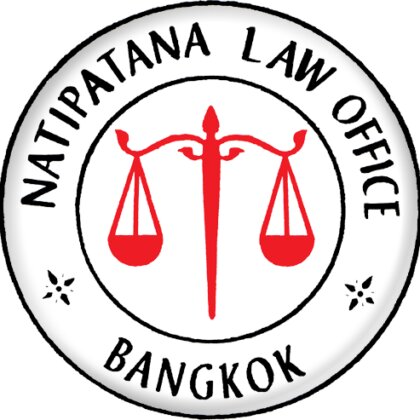Best Licensing Lawyers in Phuket
Share your needs with us, get contacted by law firms.
Free. Takes 2 min.
List of the best lawyers in Phuket, Thailand
Legal guides written by SIAM LEGAL INTERNATIONAL:
- Defamation Laws in Thailand: Criminal Charges and Civil Suits
- The State of Thailand’s Long-Term Resident (LTR) Visa Program in 2025
- The Penalties Of Not Filing Your Income Tax Return As A Foreigner In Thailand
Thailand Licensing Legal Questions answered by Lawyers
Browse our 2 legal questions about Licensing in Thailand and read the lawyer answers, or ask your own questions for free.
- Inquiry Regarding Licensing Requirements for Cryptocurrency ATMs in Thailand
- I am writing to inquire about the specific licensing requirements for operating cryptocurrency ATMs in Thailand. Could you please provide detailed information on the type of license that cryptocurrency ATM operators need to apply for?
-
Lawyer answer by Mahanakorn Partners Group Co., Ltd
Dear prospective client, Thank you for reaching out with your inquiry regarding the licensing requirements for operating cryptocurrency ATMs in Thailand. In order to operate cryptocurrency ATMs in Thailand, operators are required to comply with specific regulations issued by the...
Read full answer - What documents are required for an alcohol license in Thailand?
- I am looking to open a small beach bar and restaurant in Phuket, how can I get an alcohol license, what documents do I need?
-
Lawyer answer
In order to successfully apply for a Thai alcohol license, you will need the following documents: 1 Your company’s registration documents; 2 Rental or lease agreement; 3 Proof of the business address where you wish to hold the alcohol license;...
Read full answer
Thailand Licensing Legal Articles
Browse our 3 legal articles about Licensing in Thailand written by expert lawyers.
- Thai Legal Framework for Cryptocurrencies
- Technology, investment, and money have all been fundamentally altered by cryptocurrencies. Countries all throughout the globe struggle to design legal regimes that safeguard consumers while fostering innovation as these digital assets develop. Thailand distinguishes itself in this sense as it has one of the most thorough regulatory frameworks regarding cryptocurrencies... Read more →
- Business Licenses in Thailand: A Step-by-Step Guide for Foreign Enterprises
- Within the dynamic economic landscape of Southeast Asia, Thailand stands out, offering a compelling mix of age-old traditions and contemporary aspirations. For international businesses aiming to penetrate this enticing market, understanding and navigating the comprehensive framework of business licensing is imperative. These regulations reflect Thailand's dedication to maintaining an orderly... Read more →
- How to Apply for an Alcohol License in Thailand
- In Thailand, opening a company that sells, serves, imports, or produces alcoholic drinks necessitates a thorough comprehension of the complex licensing procedure. The Liquor Act of 1950 and the Alcoholic Beverage Control Act of 2008 provide the Thai government with a number of license types that allow for stringent regulation... Read more →
About Licensing Law in Phuket, Thailand
Licensing in Phuket, Thailand involves acquiring the appropriate legal permissions to conduct various activities, such as operating businesses, selling alcohol, or hosting public events. Given Phuket's status as a prime tourist destination, the licensing landscape can be dynamic, catering to both local businesses and international investors. Licensing requirements and procedures are governed by both national legislation and local ordinances specific to Phuket. These often involve understanding the regulatory bodies involved, the types of licenses available, and the compliance necessary to avoid legal issues.
Why You May Need a Lawyer
There are several situations where an individual or business may require legal help with licensing in Phuket. These include setting up a new business, altering the business scope, or expanding operations. Legal assistance ensures that all paperwork is correctly filed and that businesses comply with local regulations. Lawyers are also crucial when disputes arise over license terms or if there's a need for license renewal or transfer. Additionally, if you face penalties for supposed non-compliance, a lawyer can offer representation and negotiation with authorities.
Local Laws Overview
Licensing laws in Phuket are influenced by a combination of national legislation and local ordinances. Key aspects include adherence to the Thai Foreign Business Act, which regulates foreign business activities, and sector-specific licenses such as those required for hospitality, retail, or services. Foreign investors need to be particularly aware of restrictions and the necessity of work permits and proper immigration status. Environmental and zoning regulations also impact business licensing, particularly in the tourism sector, where local environmental laws seek to preserve Phuket's natural resources.
Frequently Asked Questions
What is a business license, and do I need one in Phuket?
A business license is a permit issued by the government that allows an individual or company to conduct business within its jurisdiction. In Phuket, most types of businesses will require some form of licensing to operate legally.
How can a foreigner start a business in Phuket?
Foreigners must comply with the Thai Foreign Business Act, which may restrict certain activities. It's often required to establish a legal business entity and, in some cases, a local partner. Consulting with a lawyer is advisable to navigate these complexities.
What are the penalties for not having the proper license?
Operating without the correct license can result in heavy fines, business closure, and legal action. Compliance ensures that your business remains operational and avoids these risks.
How do I apply for an alcohol license in Phuket?
An alcohol license requires submitting an application to the local district office and adhering to zoning and operational hours regulations. This process can be complex, and engaging with legal expertise is recommended.
Are there different types of licenses for different industries?
Yes, licenses vary depending on the industry, such as hospitality, retail, construction, and more. Each has specific requirements based on local and national law.
Can I transfer my business license to another person?
License transfer procedures depend on the license type and local regulations. Generally, it involves official processes that a legal advisor can facilitate to meet all legal conditions.
What is a work permit, and why do I need one?
A work permit is a legal document allowing foreigners to legally work in Thailand. It's essential for compliance, alongside a valid visa, when operating or working within a licensed entity in Phuket.
How long does it take to obtain a business license in Phuket?
The timeline for obtaining a business license can vary from weeks to months, depending on the nature of the license required and the completeness of the application. Engaging a lawyer can streamline this process significantly.
What governmental bodies oversee licensing in Phuket?
The primary regulatory bodies include the Department of Business Development, local district offices, and specific industry regulatory authorities. Each plays a role in the oversight and issuance of licenses.
Do licensing requirements differ for online businesses?
Yes, online businesses may have additional regulations, such as digital commerce laws. It's crucial to understand both traditional business regulations and those specifically for e-commerce.
Additional Resources
For legal advice and assistance, consider reaching out to the Phuket Law Society or reputable law firms specializing in business and licensing law. The Department of Business Development's local branch can provide official insights, and the Board of Investment (BOI) offers guidance specifically for foreign investors.
Next Steps
If you need legal assistance with licensing in Phuket, begin by consulting with a local lawyer who specializes in licensing matters. They can provide tailored advice, assist with preparation and submission of applications, and liaise with relevant governmental bodies. It's also beneficial to conduct thorough research about your specific industry requirements and potential legal pitfalls to discuss with your lawyer.
Lawzana helps you find the best lawyers and law firms in Phuket through a curated and pre-screened list of qualified legal professionals. Our platform offers rankings and detailed profiles of attorneys and law firms, allowing you to compare based on practice areas, including Licensing, experience, and client feedback.
Each profile includes a description of the firm's areas of practice, client reviews, team members and partners, year of establishment, spoken languages, office locations, contact information, social media presence, and any published articles or resources. Most firms on our platform speak English and are experienced in both local and international legal matters.
Get a quote from top-rated law firms in Phuket, Thailand — quickly, securely, and without unnecessary hassle.
Disclaimer:
The information provided on this page is for general informational purposes only and does not constitute legal advice. While we strive to ensure the accuracy and relevance of the content, legal information may change over time, and interpretations of the law can vary. You should always consult with a qualified legal professional for advice specific to your situation.
We disclaim all liability for actions taken or not taken based on the content of this page. If you believe any information is incorrect or outdated, please contact us, and we will review and update it where appropriate.
















